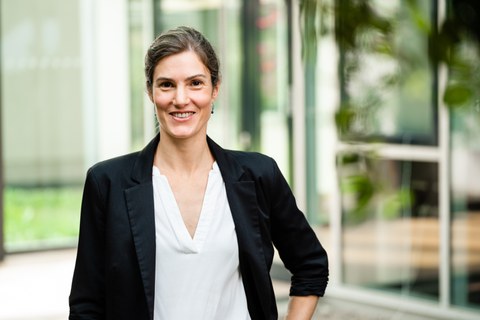Prof. Dr. Elena Hassinger

Prof. Elena Hassinger
Prof. Elena Hassinger is a distinguished expert in fundamental research in condensed matter physics, with a focus on strongly correlated electron systems.
A short video introducing her research is available on YouTube.
Elena earned her physics diploma from Heidelberg University in 2007, and completed her PhD in 2010 in the research group headed by Jacques Flouquet at CEA Grenoble, France.
During her postdoc with Louis Taillefer’s group in Sherbrooke, Canada, she received a CIFAR Global Scholarship and an FQRNT postdoctoral fellowship.
In 2014, the Max Planck Society awarded Elena an independent research group leader position, enabling her to establish and lead the “Physics of Unconventional Metals and Superconductors” group at the Max Planck Institute for Chemical Physics of Solids in Dresden, Germany, a role she held until 2022.
From 2016 to 2022, she simultaneously served as an assistant professor of Quantum Matter – Experimental Solid State Physics at TU Munich.
In 2022, Elena was appointed Professor of Low-Temperature Physics of Complex Electron Systems at TU Dresden’s Institute for Solid State and Materials Physics. In this capacity, she became a Principal Investigator (PI) in the Cluster of Excellence ct.qmat and Collaborative Research Center 1143 “Correlated Magnetism: From Frustration to Topology.”
Since October 2022, Elena has also been a Max Planck Fellow at the MPI for Chemical Physics of Solids.
In December 2024, her ERC Consolidator Grant "Ixtreme" has started.
Elena Hassinger has over a decade of experience in the field of quantum matter. She has co-authored more than 60 peer-reviewed publications, with an h-index of 26 (Web of Science).
Research Highlights
- The creation of pressure phase diagrams for various unconventional superconductors and the nodal structure of Sr2RuO4
- While investigating the electronic structure via magnetoresistance, the discovery that current inhomogeneities can affect the measurement of longitudinal magnetoresistance
- The identification of dual-phase superconductivity in CeRh2As2, a unique unconventional superconductor influenced by Rashba and Kondo interactions.
